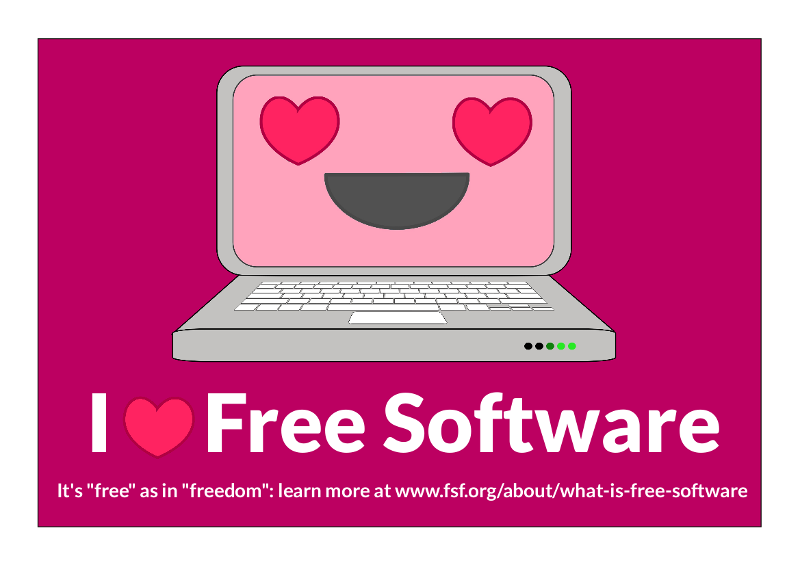I've been making the argument that everything is a free software issue for a few months now. Back in November, I was lucky enough to speak at SeaGL and SFSCon, specifically on the issues proprietary technology poses in dating and maintaining romantic relationships.
I've been thinking about this since then -- the issues and infringements on user freedom we face when using technology to meet people, date, and fall in love. I think Valentine's Day is the perfect opportunity to share just some of these thoughts I've been having.
Meeting people
Many dating Web sites run proprietary JavaScript. JavaScript is code that Web sites run on your computer in order to make certain features on Web sites function. Proprietary JavaScript is a trap that impacts your ability to run a free system, and not only does it sneak proprietary software onto your machine, but it also poses a security risk. Any piece of software can be malicious, but proprietary JavaScript goes the extra mile. Much of the JavaScript you encounter runs automatically when you load a Web site, which enables it to attack you without you even noticing.
Proprietary JavaScript doesn't have to be the only way to use Web sites. LibreJS is an initiative which blocks "nonfree nontrivial" JavaScript while allowing JavaScript that is either free or trivial.
Many dating apps are also proprietary, available only at the Apple App and Google Play stores, both of which currently require the use of proprietary software.
Going out
When it's time to meet your online date in person, or spend time together with the person you're dating, more proprietary software is ready to crash the party, whether you're going out or staying in. Many restaurants run reservations entirely through Web sites, using software and JavaScript that is proprietary. Using ride sharing apps like Uber to get around puts users and drivers alike at all sorts of risks. Or, if you decide to have a romantic evening at home, you might find yourself tempted by freedom disrespecting, DRM-supporting streaming services like Hulu and Netflix.
DRM is an oppressive technology, prevalent among downloadable, online, and streaming media. It restricts your ability to use, reuse, modify, share, and really own the media you purchase. There are practical damages DRM causes: it prevents modifying media for accessibility needs; it keeps people from being able to access their media whenever they want or need to; and it stifles creativity through the prevention of re-use. However, most importantly, the type of control enabled by DRM infringes on your freedoms.
Luckily, there are DRM-free media options available to you. Whether you want to find movies, listen to music, or curl up and read together, there is the perfect DRM-free choice available now.
A few other points
There are lots of computing technologies people use to maintain our relationships, whether romantic, familial, or platonic. They share online calendars, they use Web sites like Amazon to purchase and send presents, and they use apps like Snapchat, WhatsApp, and Facebook Messenger to connect with one another every day. These are all proprietary tools, and the act of using them restricts our freedoms.
When the ways we connect with one another are proprietary, we're trusting our secrets, intimacies, and relationships to technology we cannot trust. Software freedom is a necessary step in building trust in our computing technologies. When code is visible, the people who create that code are accountable, but also we have the rights to use, share, study and modify, and share our modifications with one another.
Software freedom is important in all aspects of our life, and that includes romance. By valuing freedom in our relationships, we're not only respecting ourselves, but we're respecting the people with whom we have those relationships.
